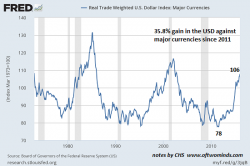Futures Sink To Session Lows, Europe Slides Following Chinese RRR Hike Confusion, Brexit Concerns
Not even this morning's mandatory European open ramp has been able to push US equity futures higher, and as a result moments ago the E-mini hit session lows on rising concerns about Brexit as talks drag on in Brussles, but mostly as a result of overnight confusion about China's loan explosion and whether the PBOC has lost control over its maniacally-lending banks.
